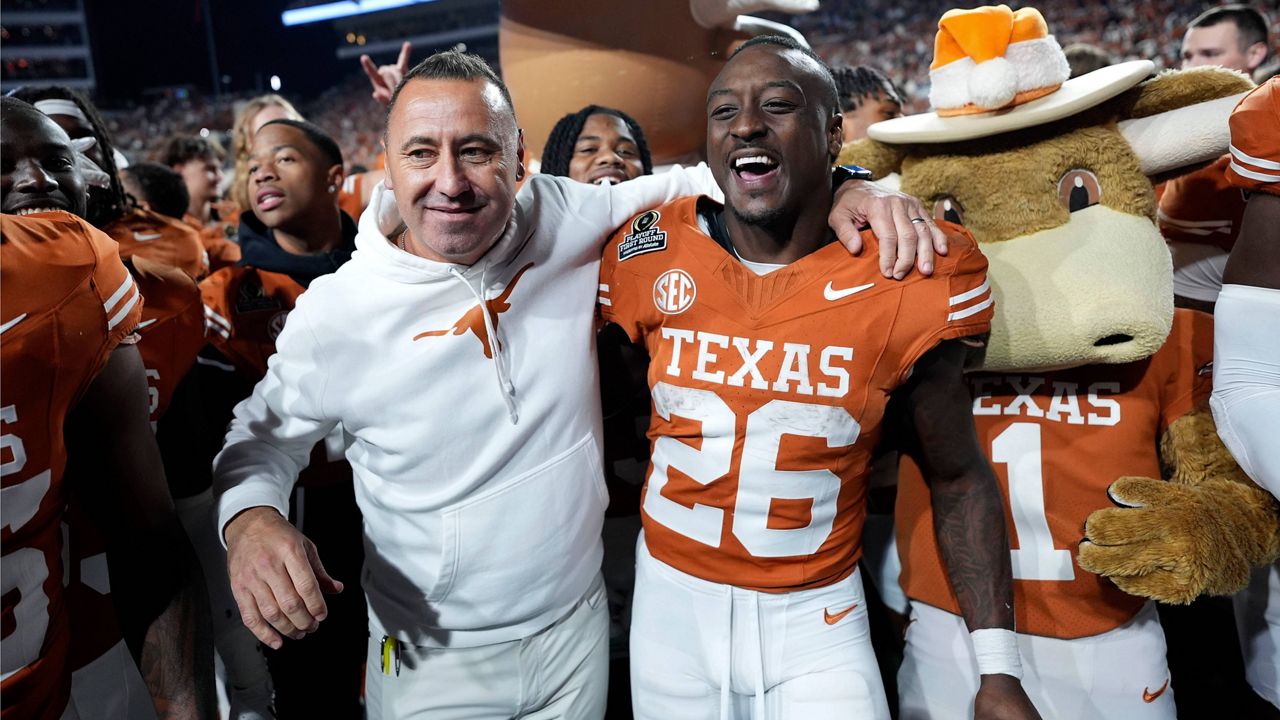Bussiness
How some big businesses could escape fallout from Trump’s ‘blanket’ tariffs
A growing question around Trump’s plan for a universal 10% (or maybe 20% or even 50%) tariffs is who will be able to evade these so-called “blanket” duties.
Trump suggests that the answer will be some companies at the very least.
“Oh, we have exceptions,” he said recently in Chicago but then gave an extended answer that seemed to suggest that options may be significantly more numerous for bigger businesses.
Trump has repeatedly noted how prominent CEOs have an open line to make their case, but how smaller importing businesses will fare if he wins is much less clear.
“As a small-business owner, I’m thinking, ‘am I even being considered?'” said Tina Wells in a recent interview after reviewing Trump’s comment. “I am not the same as a large company like Apple.”
Wells has operated multiple beauty and wellness companies that rely on overseas manufacturing in recent years and came out far from unscathed the last time Trump was in office.
“I’d lost my profit and ate the cost of the item and had to ultimately destroy the product,” she said of one run-in with tariffs that she couldn’t avoid.
Things could be worse for small businesses if a deeper round of tariffs are in the offing in 2025, she added.
Even the experts aren’t quite sure what to expect.
“There will surely be some process,” said Wendy Edelberg, director of the Hamilton Project at the Brookings Institution. Recent history, she added, shows tariff exceptions tend to happen “not necessarily based on the merits [but] likely more based on the political realities of your situation.”
Trump said he would grant exceptions based on merit, but what’s less clear is whether smaller companies without political access would have the same ability to make their case.
In response to questions for this story, a representative for the former president reiterated claims that the campaign has made previously: That tariffs in his first term had less economic downside than expected, that the Kamala Harris is trying to “fearmonger” after the Biden/Harris administration kept Trump’s tariffs in place, and that tariffs are needed to protect working people.
But the representative didn’t address questions about exceptions and the impact on smaller businesses.
‘I’ve got to get elected first’
Trump himself has put the issue in focus during recent appearances.
He spoke on exceptions last Tuesday before the Economic Club of Chicago and focused his answer on a story about Apple (AAPL) CEO Tim Cook making a visit to him during his time in office to successfully ask for tariffs exceptions.
He retold the story a couple days later in a podcast interview with Patrick Bet-David and in the process underlined how CEOs like Cook have ongoing access.
“I just spoke to Tim Cook,” he said during that appearance, adding that it happened just a couple hours prior with the CEO looking to discuss fines from the European Union for the company’s alleged breaking of music streaming rules.
“Tim, I’ve got to get elected first,” Trump said he told the CEO.
In Chicago, Trump was pressed on how smaller businesses would fare under tariffs and offered what some saw as an unsatisfactory answer.
“Isn’t the problem with the way that you do these kinds of deals,” pressed the moderator, Bloomberg editor in chief John Micklethwait, noting that “it’s the small companies who get hit by all these different things and can’t find exceptions.”
Trump waved off the concerns and offered a small business example.
But the anecdote was centered around an unnamed kitchen cabinet maker that didn’t address the concerns of smaller importing businesses. The cabinet maker in Trump’s story benefited from high tariffs (apparently without exceptions) as it meant his overseas competitors saw their prices rise in the US because of the duties.
A ‘really exhausting’ time for business
The tariff exception question comes amid a full-throated focus from the Harris campaign on the possible economic implications of his duties.
Newly minted Kamala Harris surrogate Mark Cuban has even tried to tie Trump’s policies to higher prices at Christmastime. He said during a recent appearance in Wisconsin that a Trump win would drive up prices to the point where “you won’t be able to afford the presents that you want for your family and friends.”
“Let’s just call him the grinch from now on,” the billionaire entrepreneur and “Shark Tank” star added.
Research has also shown that businesses would likely face an array of costs if faced with new trade tensions.
The Brookings Institution’s Edelberg has documented various research that found how companies devoted considerable resources in 2017 and 2018 to trying to skirt Trump’s duties, with politically-favored importers often winning relief and the process presenting a challenge for smaller companies.
Whether that comes to pass again remains to be seen, but the signals from Trump point to a “transactional nature of what I think a Trump presidency would be like,” Edelberg said.
“Exceptions are just part of what will be a really exhausting late fall and early winter for all businesses,” she added, noting that if Trump wins business of all sizes will be forced to spend significant time and energy planning even before the shape of Trump’s new duties are known.
Businesses and especially importers must plan for months and months in advance and could be tasked with decisions for their business in 2025 without a sense of what the tariff landscape will ultimately be.
It may already be happening.
As Wells noted, plans are already being finalized for deliveries in late January or early February when a new president will be in office.
“That’s happening now,” she said.
Ben Werschkul is Washington correspondent for Yahoo Finance.
Read the latest financial and business news from Yahoo Finance










